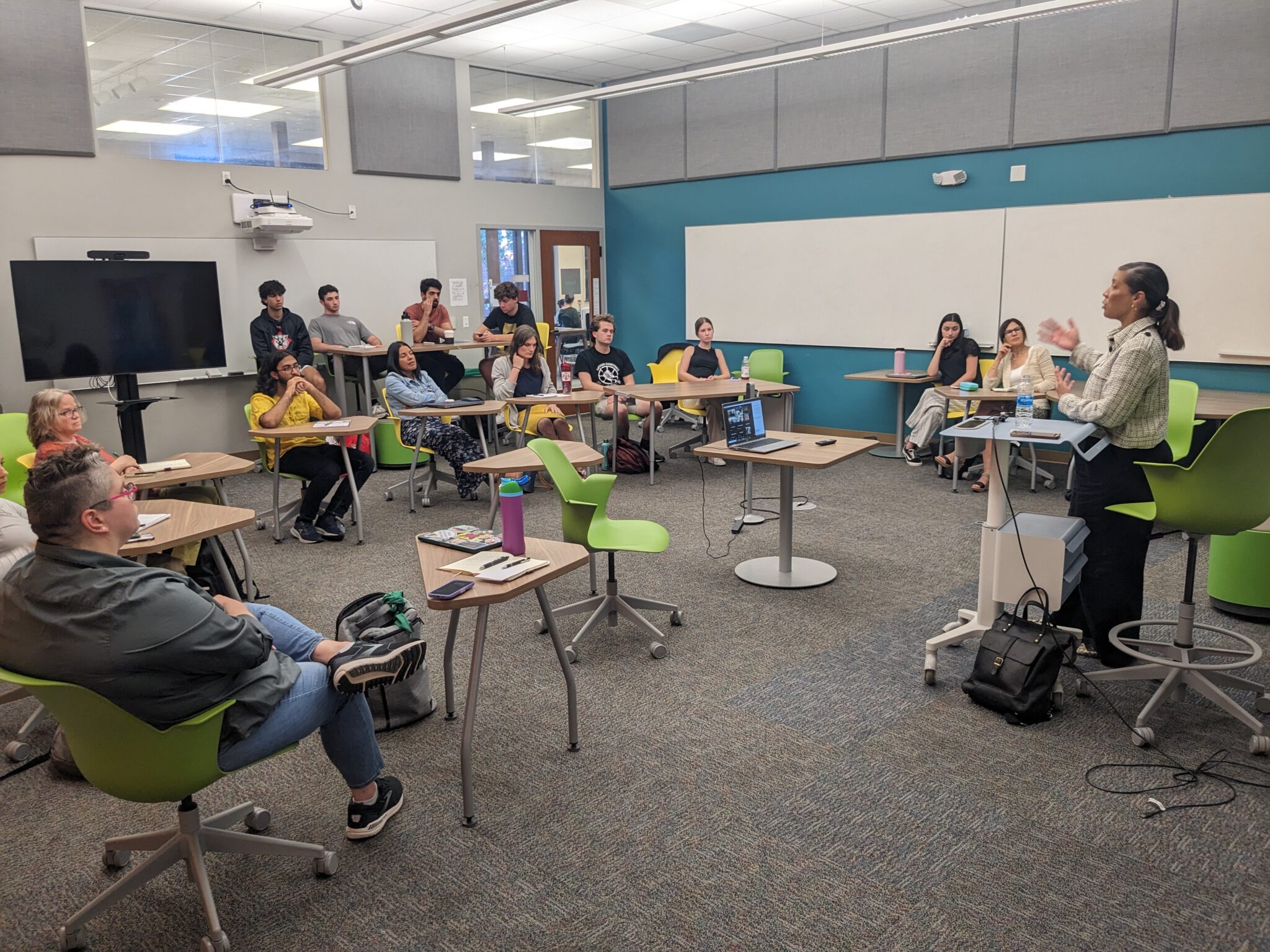
Grace Gallagher ’26 (DCI Fellow)
This fall semester, the DCI brought Christy Vines to campus for our Fall Speaker Series. She led a workshop, screening of her film, Dialogue Lab: America, and a campus lecture to share her various thoughts and experiences about empathic intelligence with the Davidson community.
Before hearing her speak, I did not know anything about Empathic Intelligence (EI), but her events taught me a lot about it and provided me with a new perspective. I thoroughly enjoyed listening to her thoughts, and I have found several applications of her points to our work with the Deliberative Citizenship Initiative.
First, she stressed the importance of being “effective” rather than being “right” in conversations with others. I have noticed through my D Teams, the forums that we have had, and through DCI Fellows meetings and discussions, that adopting this mindset makes deliberating much more productive and rewarding. Many of our most contentious topics in the world are topics with varying perspectives and without a “correct” answer, or without an answer we can all agree on. For example, one of our D Team meetings was about abortion. When individuals disagree about the ethics of abortion, the most productive action that can be taken is explaining to others where your opinion comes from and why you believe what you believe to make sure that others understand different perspectives. Abortion is an issue in our society that lacks agreement, making these conversations especially beneficial.
Another point that Christy Vines discussed was the idea that you do not need to change someone’s opinion very much at all in order to have a significant impact. She used the metaphor of a gauge that moves someone 5 degrees in the moment, such as in the direction of a large ship. At first this does not seem like much of a change, but that 5 degrees will keep them going in a new direction for a long time and cause them to end up in a very different place. Simply expressing where your opinion comes from can potentially provide someone with that 5 degree gauge rotation that informs, challenges, and orients them towards a different perspective.
In my opinion, these two points seem incredibly important and beneficial to think about when discussing contentious topics with others. However, these ideas are both much easier to talk about and understand than to utilize when deliberating. When deliberating about a topic that is important to you, I believe that it can sometimes be really difficult to follow the deliberative dispositions and agreements because your emotions can overtake what you are saying, but these ideas can help individuals to refocus their points more effectively.
I have had the opportunity to participate in DCI deliberations from the perspective of both a deliberator and a facilitator. Last Fall, before I became a DCI Fellow, I was a deliberator in the D Team series on elections, focusing on election security, fairness, and accessibility. As a deliberator, I experienced some of my deliberations having very cohesive opinions and others with opposing views, especially regarding recent elections. This year, I am a DCI Fellow, and I have experienced both of these different scenarios as a facilitator. As a deliberator, it is much harder to comprehend if others are gaining any value from your points and whether they are believing you are wrong or truly trying to understand your view. As a facilitator, I believe it is much easier to recognize when someone’s point is being effective and engaging others into their view. This is apparent when participants begin to let their guards down, connect with others further, and realize new ideas.
